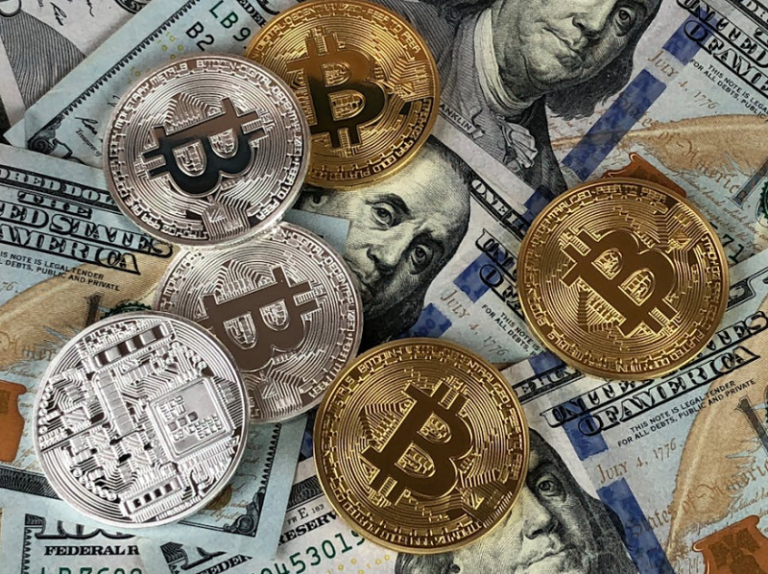As interest in cryptocurrencies surges once again, particularly with Bitcoin (BTC) reaching the milestone of $100,000 in early December, it’s worth exploring the diverse ways in which these digital assets can be advantageous in various facets of our lives.
Here are some of the primary uses of digital currencies in a rapidly evolving world.

Source: Pexels
To Save or Invest
The recent headlines and heightened public interest have largely focused on the potential for significant and rapid price surges that digital currencies offer. The tumultuous journey of BTC since its inception, as documented by Money.USNews.com, showcases periods of explosive growth. While other forms of digital assets have followed a similar trajectory, the volatility associated with them places them at the riskier end of the investment spectrum compared to traditional options like stocks and bonds.
Approximately 50 million individuals own BTC, with a capped supply of 21 million tokens ensuring its perpetual exclusivity. Price forecasts for leading cryptocurrencies vary widely, making it challenging for newcomers to anticipate future trends. Despite the uncertainty surrounding price movements, digital currencies have undeniably become a significant component of the digital economy in recent years.
Staking represents one method of holding digital assets for an extended period, allowing investors to potentially grow their holdings and earn additional income. This involves locking tokens in the network to perform tasks such as transaction validation or network security, resulting in rewards akin to interest payments. However, this approach does not eliminate the price volatility inherent in cryptocurrency values.
The Ethereum (ETH) network is a popular choice for staking, with over 34 million tokens staked at present. Known for its expansive Web3 ecosystem, Ethereum facilitates smart contract execution for decentralized finance (DeFi) applications and NFT creation. Despite its robust utility, Ethereum has consistently trailed behind BTC in market valuation since its introduction in 2015.
Buying Goods and Paying for Services
The debate regarding whether cryptocurrencies will supplant fiat currency for everyday transactions has sparked controversy among early adopters and skeptics of digital money’s efficacy. Federal Reserve Chairman Jerome Powell recently characterized BTC as digital gold rather than a direct competitor to the dollar, as reported by CryptoSlate.com. Nonetheless, cryptocurrencies are increasingly accepted as valid payment methods.
Electric vehicle manufacturer Tesla exclusively accepts Dogecoin (DOGE) as a form of payment, while Litecoin (LTC) is another widely accepted cryptocurrency for purchases and transfers. Several digital assets are specifically designed for integration within particular ecosystems. For instance, Avalanche (AVAX), Chainlink (LINK), and Hedera (HBAR are integral components of the DeFi infrastructure, which aims to revolutionize banking operations through blockchain technology.
Cryptocurrencies facilitate swift and cost-effective funds transfer, making them an attractive payment option for industries such as online gambling, including platforms like IgnitionCasino.eu. With cryptocurrencies like BTC, ETH, and LTC offered alongside traditional fiat methods, users can securely deposit funds, play games, and withdraw winnings, aligning with the industry’s emphasis on safety and transparency.
One intriguing aspect of using cryptocurrencies for gambling is that price fluctuations in these assets can impact the overall winnings or losses. This introduces an additional layer of volatility, as players essentially gamble on both the game outcomes and the price movements of their chosen tokens, unless they opt for a stablecoin to mitigate risks.

Source: Pixabay
Sending Money
One of the earliest and most essential use cases for cryptocurrencies was facilitating cross-border money transfers, a function for which digital assets like BTC remain cost-effective and secure. However, some analysts believe that cryptocurrencies such as Ripple (XRP) and Stellar Lumens (XLM) could revolutionize the remittance sector by enabling instantaneous global fund transfers.
These platforms offer a more efficient and economical alternative for banks to process international remittances compared to conventional systems like SWIFT. For individual transfers, stablecoins like Tether (USDT) and USD Coin (USDC) eliminate price volatility, making them a prudent choice for individuals seeking to send funds without the risk of value depreciation.
These examples underscore the increasing integration of cryptocurrencies into various facets of our lives, even as understanding of their functionality varies among individuals. The cryptocurrency market is poised to continue generating significant headlines as more individuals engage with digital assets and explore their diverse applications.

